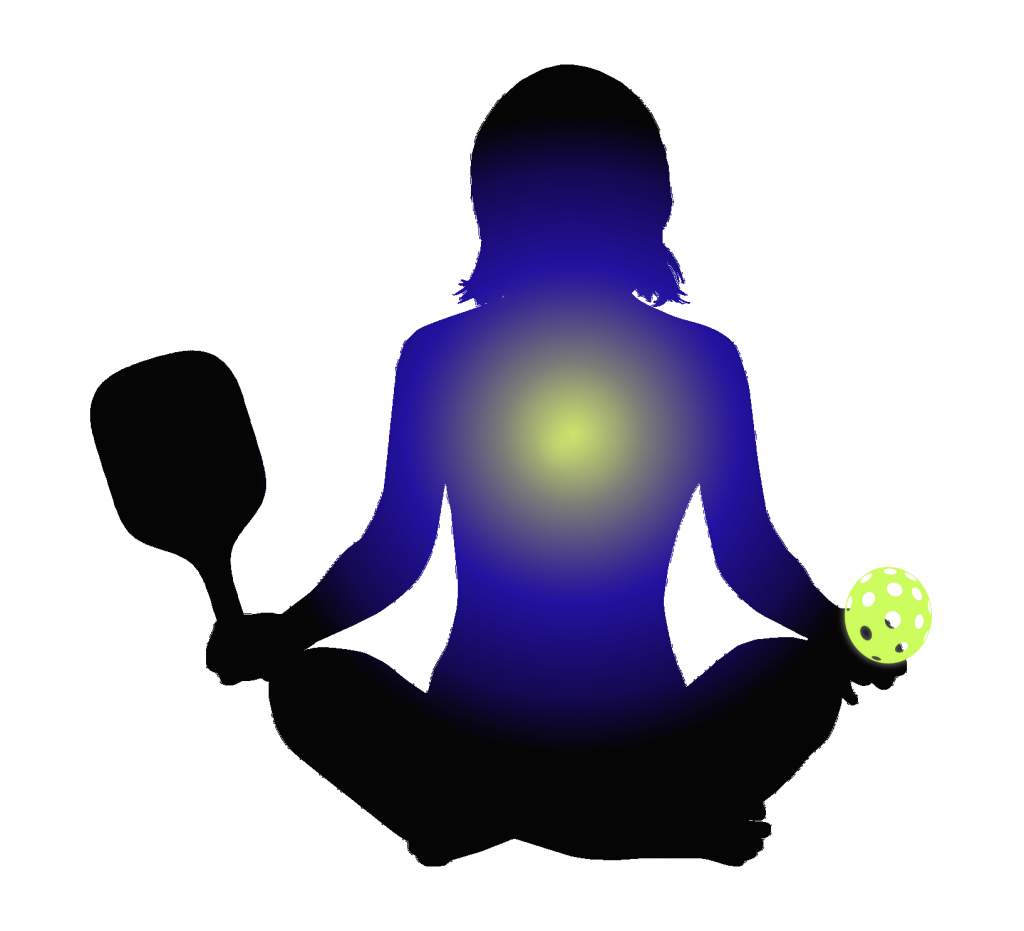
I believe pickleball is the ultimate sport for personal or spiritual growth.
We are so close to our opponents and the game is so fast and intense, that all our deepest triggers and programs seem to come to the surface.
But what an opportunity!
Most of us are unconsciously controlled by childhood programs that we have no idea are running. We think the ways we habitually think, feel, react and behave are who we are, but nothing could be further from the truth.
We actually have infinite choice in how we respond to the world. And the way 99% of us respond is via patterns that no longer serve us. These ways of reacting may have worked for us in our childhood – say to protect us from being punished for doing something wrong – but they do not serve us as adults. In fact, they tend to negatively impact our lives in many unseen ways.
How do you know if you are running a program? It’s actually quite simple!
If you are experiencing a negative emotion, then you are thinking in a way that is no longer useful.
That’s pretty much all of us, right?
Our emotions are our 100% accurate guidance system! We have been taught that they are telling us something about our environment or circumstances, but our external situation is completely subjective. Our feelings are actually instead telling us about the state of our inner world.
In other words, our feelings are telling us if we are having peaceful thoughts. If we are not at peace on the pickleball court then we need to change our thinking. And our feelings are telling us clearly and directly what needs to change.
So we need to become curious about what our feelings are telling us so we can start to make adjustments to our thoughts and beliefs. It can be a slow process as old and rigid neural pathways will continue to fire – but the good news is our mind is endowed with “neuroplasticity” – the ability to create new pathways in order to learn and adapt.
Below are my 6 key ingredients to reprogram the unconscious and find more peace on the court.
There is no formal order or scientific process for these – it is more of an art personal to you. They are all intertwined and affect each other. Trust your circumstances and intuition will guide you to which is best for you to focus on in any given moment.
TAKE TO THE COURT
Set Intentions

All change starts with an intention and your intention will vary based on what stage of the journey you are on. Try one of these:
- “I want to find peace on the court”
- “Help me to not listen to the negative thoughts in my head”
- “I am going to stay calm and not react negatively when I am triggered”
Develop Awareness

It is vital to “Know Thyself” and the only way to do this is to become aware of what is happening in the inner world. Awareness or mindfulness is a skill that needs to be developed like any other. These tools can help you cultivate more awareness:
- Meditation or mindfulness practice – there are many guided meditations available online to get you started
- Come to the court with a sense of curiosity and ask yourself questions – “I wonder why I did that?”, “Is what I am thinking true?”
Become Present

Being present in your body on the court is the way out of a busy mind, and which can lead to a peaceful inner world. You need to be in your body to play to your potential in a calm, composed and responsive way. Try these tools:
- External focus of attention – focus on your opponent, the ball, the way their paddle moves, the look on their face
- Internal focus of attention – get in touch with what is happening with one or more of your senses. What can you hear or smell? What sensations do you feel on your skin? How are you breathing?
Manage Emotions

When we experience strong or overwhelming emotions it is common to find ourselves overreacting and taking them out on ourselves or others on the court. Maybe we project onto other players on the court blaming them for our situation. Maybe we direct it internally and harshly judge ourselves for something we did or didn’t do. Try these tips:
- When you are triggered emotionally tell yourself “I am having an emotional reaction”. Just acknowledging it can help it subside
- Try not to act. Wait for the feeling to pass before taking it out on anyone else. In an emotional moment, we may do something we regret that is difficult to rectify later.
Reframe Thoughts

Our thoughts have been given to us by our parents, teachers, peers, authority figures and culture, and the large majority are not true. And they are not who we are. We have infinite choice in how we think and feel, we just need to learn how to choose different thoughts:
- Ask yourself “Is this though useful or useless?” If it is useless or even damaging, then you don’t have to (in fact, shouldn’t) listen to it
- Can you find any evidence to counter the thought? Usually when we are triggered we experience “all or nothing” thinking where we think something is 100% true all of the time. but we can almost always find a time or situation from the past when the thought was not true.
Repeat & Repeat Again

Just as improving pickleball requires hours and hours of repetition, internal skills are no different. They require determination, persistance and patience. Here are some ideas to keep you going:
- Reflect after your time on court, journalling is a great tool for this, Ask yourself – How would you like things to be different next time? Were you triggered? What worked? What didn’t work?
- Set intentions for the next time you play – something you can keep working on, something new you can try. Having an internal strategy for peace is even more important that having a game strategy!
“Our feelings are a foolproof guidance system to show us that our thinking is not accurate nor useful”

